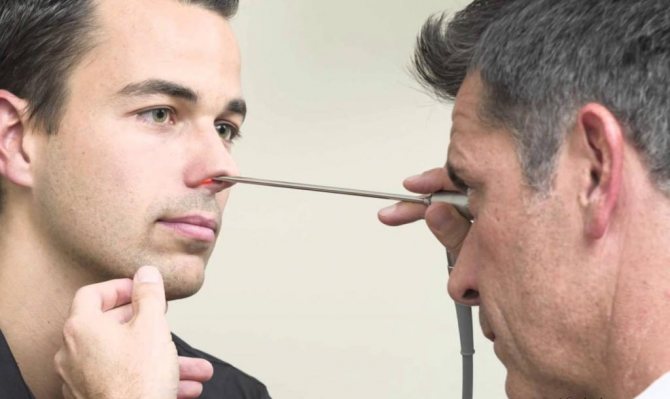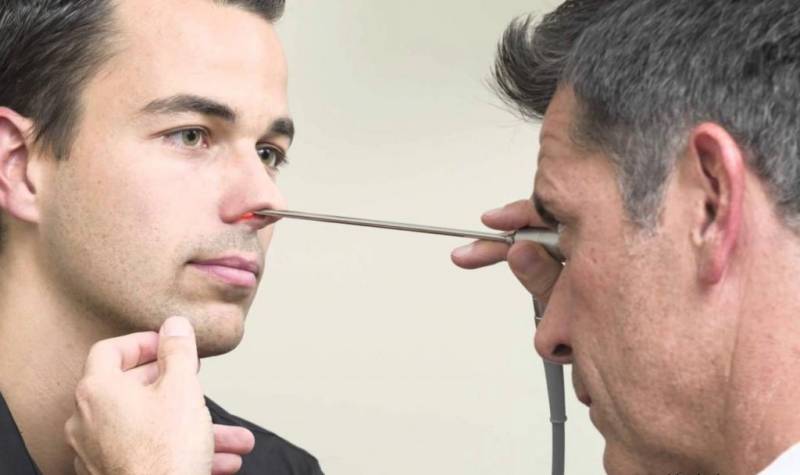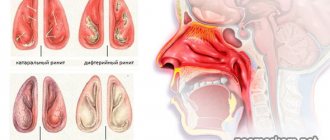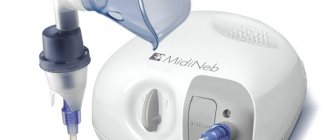How nice it is to feel the aroma of your favorite dish, flowers, and freshness after a thunderstorm! Our sense of smell is capable of recognizing 10,000 aromas, and our brain allows us to remember them all, often the first time. The ability to recognize odors is a natural state for us, and the sudden sensation that the nose is breathing, but does not smell, can unsettle a person. Which is not surprising, because dysfunction of the sense organs leads to a malfunction of other organs and systems of our body. Why did the sense of smell disappear and how to get it back?
Loss of sense of smell for a long time
However, in some cases, loss of smell persists for a long time. Most often, elderly people suffer from this phenomenon. Anosmia, among other things, may indicate the presence of quite serious pathologies in the body. Therefore, the answer to the question about what to do for anosmia is clear - a person should consult a doctor. Only he will be able to identify the exact cause of the loss of smell and prescribe effective therapeutic measures.
Why can't a person smell?
The reasons for the lack of smell in humans are divided into two large groups: anosmia can be congenital and acquired during life.
The first group is small in number and is associated with congenital defects of the respiratory system, underdevelopment of the skull and nose.
Anosmia acquired during life is also divided into subgroups:
- central (provoked by brain damage of various natures: trauma, illness, etc.);
- peripheral (occurs as a consequence of diseases of the upper respiratory tract).
It is quite common for a person to stop feeling smell after suffering from one of the diseases affecting the central nervous system or the brain. These are diseases such as:
- meningitis;
- encephalomyelitis;
- arochnoiditis;
- Alzheimer's;
- ethmoiditis.
Also common causes of loss of smell are open or closed brain injury; a brain tumor. All these are the causes of central anosmia.
A human brain tumor can cause anosmia.
Peripheral loss of smell is equally common. As already noted, it is associated with diseases of the nasopharynx associated with complete or partial loss of nasal breathing, primarily with advanced rhinitis, sinusitis, and sinusitis of various natures.
A person (fully or partially) loses the ability to perceive odors when the nasal septum is deviated, the tissues of the nasal cavity grow - the appearance of tumors in it.
Interestingly, peripheral anosmia can be caused by neuroses and strong psycho-emotional shocks. In this case, the person should be treated not by an ENT specialist, but by a psychotherapist, psychologist or even a psychiatrist.
The reason for a person’s lack of smell is also age-related changes. It has been proven that by the age of 60 people lose their sense of smell by about 50%. If an elderly person has chronic dry nasal cavity, vosomotor rhinitis, the acuity of smell decreases even more.

Older people lose their sense of smell
Causes of anosmia
The main reasons why the nose does not smell are: infections of the paranasal sinuses, allergic reactions, colds, poor air composition.

Anosmia can also develop for other reasons, including:
- The formation of nasal polyps - small neoplasms in the sinuses and nose that are benign and block the nasal passage.
- Damage to the nerves and nose as a result of a head injury or surgery.
- Inhalation of solvents, pesticides and other toxic chemicals.
- The use of certain medications, including heart medications, anti-inflammatory drugs, antibiotics, antidepressants.
- Cocaine use.
- Radiation therapy aimed at treating malignant tumors localized in the neck or head.
- The presence of disorders such as hormonal, congenital pathologies, nutritional deficiency, multiple sclerosis, Parkinson's and Alzheimer's diseases.
- Elderly age. The sense of smell, like hearing and taste, begins to weaken with age. The greatest degree of exacerbation of the sense of smell is observed at the age of 30-60 years, after which it begins to gradually decrease.
Types of anosmia
The situation in which the nose does not smell, or anosmia, is classified by experts into several subtypes. Taking into account the origin, acquired and congenital anosmia are distinguished. Congenital anosmia occurs when the infant's nerve pathways responsible for the sense of smell are underdeveloped or completely absent. Most often, this pathology is accompanied by other congenital developmental pathologies.
According to statistics, acquired anosmia is much more common than congenital anosmia. It develops against the background of many years of smoking, injuries, colds, allergic reactions, and nasal polyposis.

Peripheral and central loss of smell
Taking into account the type of disorder, it is customary to classify the loss of smell into peripheral and central. If the respiratory function of the nose is fully preserved, but the sense of smell is absent, then we can talk about the central type of anosmia. It occurs against the background of brain damage, encephalopathy, Alzheimer's disease, multiple sclerosis, and disorders in the olfactory center. In addition, central anosmia can develop after the patient has suffered infectious meningitis or serious TBI. A feature of central type anosmia is that patients are able to smell, but are not able to characterize them. In some cases, the sense of smell is restored on its own, without any therapy.
It happens that the nose breathes, but does not smell. This seems especially strange.
Peripheral anosmia occurs due to allergies, flu, and colds. In some cases, the sense of smell disappears due to neuroses and hysterical reactions. This category also includes age-related loss of smell, which develops due to atrophic changes in the epithelium of the nasal mucosa.

If the patient loses his sense of smell, he should first contact a therapist, who will determine the etiology of anosmia and refer him to a more specialized specialist - an otolaryngologist or neurologist.
Treatment
To get rid of this scourge for us, it is necessary to eliminate the runny nose and drain mucus from the nasal cavity.
Before all this, you need to limit yourself to using nasal drops. Instead, it is better to go for physical procedures, for example, electrophoresis, phonophoresis, UV irradiation of the nose and throat, bioptron. If you urgently need to breathe, you need to accustom yourself to using saline solutions, which perfectly help eliminate the symptoms and preconditions of the disease. The minerals and natural ingredients they contain significantly improve the functioning of the nasal mucosa.
Medical recommendations
- You need to do gymnastics once a day - strain and relax your nasal muscles for 10 minutes. You must keep your nose tense for at least a minute.
- Massage the wings of the nose.
- If the sense of smell is lost and there is a loss of taste, it is necessary to do warm-ups.
It is recommended to warm your nose with a blue lamp; if it is not available, you can use an ordinary student lamp. Warming is carried out at a distance of 25 cm, warm for 10 minutes, once a day for a week. - Rinse your nose daily with pharmaceutical saline solutions - Delphi, Aquamaris, Humer.
- You can drip Pinosol oil drops into your nose.
Attention! For healing, it is prohibited to use vasoconstrictor drops, sprays and combination drops containing a vasoconstrictor component (Polydex, Vibrocil).
Traditional methods
- You need to do steam inhalations over water with the addition of lemon juice, lavender and mint oil.
Do them once a day, number of procedures - For inhalation, you can prepare a decoction of sage, calendula, nettle or mint, with the addition of fresh garlic juice.
You need to cover your head with a blanket and breathe over the steam for 15 minutes.
- Insert cotton swabs soaked in honey into your nose for 20 minutes.
- If you have lost your sense of smell, you can breathe over the smoke from burning wormwood, garlic or onion peels.
- Inhaling pungent odors: horseradish, onions, mustard will help restore the taste.
- It is useful to inhale the vapors of menthol oil or Star balm.
- Make hot foot baths with the addition of mustard, eucalyptus, and pepper. They improve blood circulation, are great for treating a runny nose and congestion, and drive away colds, especially if you take hot baths before bed.
Diagnosis of anosmia
The diagnosis of anosmia, if the nose does not smell, is established by a specialist based on the patient’s complaints, specific symptoms, and the results of an instrumental examination.
In cases where anosmia is not associated with previous colds or allergic reactions accompanying a person and lasts more than half a month, the patient should consult a specialist. An otolaryngologist examines the nasal cavity using a special instrument and determines the relationship between the loss of smell and the process of infection by pathogenic microflora or growing polyps.
The otolaryngologist will be able to determine the exact cause of anosmia through various diagnostic measures and studies. It is possible that a computed tomography scan will be prescribed, with the help of which the doctor is able to examine the affected area in more detail.
So, a person is tormented by the question: “I have a stuffy nose, I can’t smell or taste, what should I do about it?”

How to restore your sense of smell?
If for a long time, without apparent circumstances, there is no sense of smell, it is necessary to contact an otolaryngologist (ENT) as soon as possible . Only a qualified specialist will be able to maintain the stable operation of the organ. An otolaryngologist, using special techniques, will be able to find the real cause of the malfunction of the sense organ, after which he will prescribe a special treatment.
The approach must be comprehensive : surgical intervention, physiotherapy, special medications. Only a complete and professional approach to healing will be able to regain your sense of feeling. In addition to everything else, the specialist must create a personal nutrition system to restore the sense of smell. It is especially beneficial to consume foods that contain vitamin A and zinc:
- orange and yellowish vegetables;
- dairy products;
- beef;
- sunflower or pumpkin seeds;
- liver;
- chicken eggs;
- legumes
If the otolaryngologist cannot find any disorders that may directly or indirectly affect the loss of sense of smell, you need to visit a neurologist. The problem may lie in a disruption in signal transmission to the cerebral cortex.
Often the problem is nerve damage, cancer, Parkinson's disease or multiple sclerosis. Diabetes can also be a cause of disturbances in the functioning of the sense organ. If healing is not started at the right time, damage occurs to the nerve cells that process data about incoming odors.

If you suspect diabetes, you need to go to an endocrinologist, who will make an appropriate diagnosis and prescribe the appropriate procedures. Now knowing which nose does not perceive the aroma, you can begin healing in time and avoid the most severe complications.
Anosmia therapy
In cases where anosmia is caused by nasal congestion due to allergies or a cold, specific therapy for the developed loss of smell is not required. Most often, unwanted symptoms disappear on their own in about a week.
The use of short-acting glucocorticosteroids will help reduce severe swelling of the mucous membranes in the nasal cavity. As a result of their use, the patient’s breathing becomes easier, and he begins to smell better.
When your nose cannot smell, your doctor will tell you what to do.
If progression of nasal congestion is observed over several days, you should seek advice from a specialist. In cases where the pathological process is provoked by the activity of pathogenic microflora, the patient is prescribed a course of therapy using antibacterial medications.
Causes
When you have a runny nose, air access to the olfactory receptors is blocked.
This means that air particles carrying aroma, due to snot, have difficulty penetrating into these places, resulting in loss of smell and taste. People who suffer from chronic runny nose, sinusitis and sinusitis are especially susceptible to this condition. Adenoids, polyps, allergies, nasal septum defects and neoplasms in the nasal cavity significantly worsen the situation.
Viral infection
A decrease in the sense of smell always occurs in the second phase of a runny nose during a viral infection, when nasal itching and sneezing are replaced by copious liquid discharge and congestion. This happens for two reasons:
- The secretions envelop the walls of the nose, preventing air from entering them.
- Some viruses block the functioning of receptors.
Sinusitis
If, a week after the cold, the condition worsened, the temperature began to rise, the sense of smell and taste disappeared, persistent nasal congestion and headaches appeared, the disease may have been complicated by sinusitis (sinusitis). Sinusitis is an inflammation of the mucous membrane of the paranasal sinuses. The mucous membrane of the sinuses swells, the secretion stagnates and turns into pus.
Microorganisms that cause sinusitis destroy the epithelium, so taste and smell signals simply stop reaching the brain. This is the cause of loss of smell.
Overdose of nasal drops
Vasoconstrictor drops can be dripped no more often than every 4–6 hours and no more than 3–4 times a day. The duration of treatment for most drugs is 3 days. But it is not uncommon for people to abuse these medications and instill them often and in large quantities.
With prolonged and frequent use of vasoconstrictor drugs, the muscular layer of the nasal vessels ceases to function independently, and the nutrition of the vessel wall is disrupted.
You can also dry out the nasal mucosa by irrationally using astringent drops - Collargol and Protargol.
Allergy
The sense of smell may disappear temporarily during an allergic rhinitis.
This happens due to swelling and an abundance of liquid secretions, which prevent air from coming into contact with the olfactory receptors. If the sense of smell has disappeared due to allergies, then first of all you need to get rid of it with the help of antihistamines and hormonal drugs.
Hormonal disorders
It’s not scary if the sense of smell has disappeared during pregnancy (against the background of vasomotor runny nose), menstruation, or after taking oral contraceptives. The reason for this is hormonal changes, after which everything returns to normal.
Anatomical changes in the nasal cavity
The cause of loss of smell may be changes in the nasal cavity, accompanied by discharge:
- polyps;
- adenoids;
- large curvature of the nasal septum;
- tumors;
- hypertrophy of the nasal concha.
To restore your sense of smell, you need to get rid of the listed anatomical defects. It is possible that this is only possible with the help of surgery.
Poisons and chemicals
The sense of smell and taste disappears in people who work in the production of toxic substances and come into contact with paint and varnish products, petroleum products, vapors of various acids, etc. This condition, called anosmia, or complete loss of sense of smell, may or may not be accompanied by a runny nose.
In addition, active and passive smokers also often complain that they have lost their sense of smell. Receptors can die completely, and it can be almost impossible to restore their original functions.
For polyps
If a relationship between anosmia and the growth of nasal polyps or other tumors is established, the patient is prescribed surgical treatment. Through surgery, the obstruction in the nasal passage is removed, which improves nasal breathing and restores the sense of smell.
When there is a suspicion that anosmia is caused by the use of any medications, it is necessary to inform the doctor who prescribed the drug. It is likely that the development of anosmia is a side effect of the medication, then changing the drug will solve the problem. However, discontinuation of the drug should be agreed with the doctor; you should not resort to such drastic measures on your own decision.

Recommendations
In some cases, treatment for loss of smell is not required, as it recovers on its own and spontaneously. Unfortunately, it is not always possible to cure anosmia, in particular, this applies to age-related loss of smell. But there are several recommendations that, if followed, will reduce discomfort when living with anosmia. For example, experts advise installing fire and smoke detectors at work and at home. It is also important to exercise caution with food whose quality is suspect due to its expiration date or appearance. You should not eat such products if there is even the slightest suspicion of their poor quality, when the nose has ceased to smell.
Traditional medicine tips
If a person has stopped hearing smells due to a chronic runny nose or blockage of the nasal passages with thick mucus, traditional medicine recipes can come to the rescue. Not so long ago, those suffering from hyposmia and anosmia were recommended to sniff horseradish, mustard or vinegar vapor. However, strong odors only increase swelling and doctors recommend that if you try it on yourself, then only use gentle methods. Below you will find several effective methods that can be easily done at home:
- Pour a glass of boiling water into an enamel saucepan, add 10 drops of lemon juice and a couple of drops of fir, lavender, mint or eucalyptus essential oil. Breathe in the steam for 3-5 minutes in each nostril.
- When you have a persistent runny nose, inhaling the aroma of basil essential oil helps. Place a few drops on a napkin and place it next to you or in your breast pocket.
- Rinsing your nose with a solution of sea or table salt helps improve your sense of smell. To prepare the solution, dissolve half a teaspoon of salt in a glass of water, and you can also add a couple of drops of iodine.
- An ointment based on propolis will help get rid of a lingering runny nose and restore your sense of smell. To prepare it you will need 1 teaspoon of propolis, 3 teaspoons of butter and the same amount of olive oil. All ingredients must be melted in a water bath and mixed into a homogeneous mass. The resulting ointment is used to lubricate the nasal passages.
- If your sense of smell is completely lost, it is recommended to drink sage infusion. To prepare it, pour a tablespoon of dry raw material with 2 cups of boiling water and leave for an hour. Take half a glass 3 times a day.
- To increase the sharpness of your sense of smell, it is useful to chew spicy cloves (without swallowing) or watercress leaves 5-6 times a day for 5 minutes.
Once you realize that you have stopped smelling, do not rush to resort to traditional medicine recipes. First, it is important to determine the cause of the smell disorder, because the symptom may be the only symptom of the development of a serious disease.
The sense of smell plays an important role in our lives. When it disappears, food becomes tasteless and outdoor recreation becomes uninteresting. To prevent the development of hyposmia and anosmia, it is important to take care of nasal hygiene: maintain sufficient air humidity in the apartment, and when visiting places with large crowds of people, such as clinics, use oxolinic ointment, which will protect against airborne infections. And do not forget that the key to good health is a stable state of the immune and nervous systems. Try to eat right, avoid nervousness and prevent infectious diseases from becoming chronic.
Source
Prevention of anosmia
In some cases, treatment for anosmia is impossible, in particular this applies to congenital pathology. However, in most cases, this disease can be eliminated. Following simple preventive measures will help prevent loss of smell:
- It is necessary to begin therapy for infectious processes localized in the nasal cavity as early as possible.
- It is recommended to get rid of such a negative habit as smoking. Cigarette tar and nicotine can disrupt the transmission of neural signals, including those responsible for the sense of smell.
- When using vasoconstrictor medications, you must strictly adhere to the recommended dosage.
- If an allergy is present, the patient should minimize contact with the allergenic agent.
- The diet should be enriched with zinc and vitamin A.
- If there is a need for rinsing, you should use chamomile, eucalyptus or sage infusion. These herbs eliminate swelling of the mucous membranes and have an anti-inflammatory effect.
- If your work involves hazardous work, it is important to adhere to safety precautions and avoid head injuries.

If the loss of smell is due to the growth of a polyp, you should not delay its removal. Firstly, it will only grow over time, and secondly, early elimination of the cause of anosmia increases the chance of successful therapy.
Why you can’t smell with your nose and what to do about it is now clear.
Functions of the trigeminal nerve
Trigeminal nerve
The trigeminal nerve is the connecting link that is responsible for how the nose will perceive surrounding smells, the tongue and larynx - all shades of taste. Doctors call the trigeminal nerve a complex sensor that is aimed at transmitting signals to the brain about impending danger. This could be toxic harmful fumes, chemical poisoning, exposure to natural gas, fire, etc. Of course, we cannot help but recall that the sense of smell is also indispensable in determining the smell of food and its taste.
The sense of smell is very sensitive to various sources of heat and cold. If a person finds himself in an environment with a low temperature, then within a few seconds he will feel a shiver throughout his body. Anatomically, this can be explained by the structure of the glossopharyngeal, facial, trigeminal and vagus nerves.
In simple words, the nose is able to capture not only the surrounding aromas, but also perceive shades of cold or warmth. The ability to sense and feel belongs to the chemosensory system. So, why do some people have no sense of smell at all? Why can't a person feel taste and smell? What is the reason for this and what to do in such a situation?
Loss of smell occurs as a result of blocking the activity of the olfactory neuroepithelium, damage to the receptor zone, or pathological damage to the central olfactory pathway.
A condition characterized by complete loss of both sense of smell and taste is called anosmia. The first symptom of this pathological condition is a decrease in the taste of the food consumed. At the same time, the nose also does not feel and does not capture all the smells that surround a person.
Other trigeminal nerve disorders include:
- Hypersensitivity to surrounding odors - hyperesomia;
- Hallucinations of smell and taste;
- A sharp decrease in the perception of the taste of dishes - ageusia;
- Complete distortion of taste - dysgeusia.
- Factors affecting the functioning of the trigeminal nerve
The reasons for the decrease or complete loss of smell are quite different. If the nose does not sense the surrounding odors, then this phenomenon is characterized as anosmia. Anosmia is most often characterized by bilateral damage to the nasopharynx.
Diagnosis of the disease consists of closing the patient’s sinuses one by one and asking them to inhale the smell of perfume, cigarettes, coffee, vanillin, and citrus fruits. If the patient does not feel or perceive these odors, this means that the sense of smell is impaired.
If a person notices that he does not perceive the aromas around him, then at the first stage you can not visit the doctor, but purchase special test systems at the pharmacy.
If the self-diagnosis result is negative, you must visit a medical facility. The causes of loss of smell may include mechanical damage to the cells lining the nasal mucosa. The triggering factors in this case are:
- Chronic infectious rhinitis;
- Allergic rhinitis;
- High smoking history;
- Flu;
- Leprosy;
- Exposure to chemicals;
- Traumatic brain injury;
- Fractures of the nasal septum;
- Subarachnoid hemorrhage;
- Chronic meningitis;
- Consequences of neurosurgical surgery.

In addition to the above, the nose does not feel due to compression of the bulb in the nasal cavity, which is responsible for the sense of smell. Also, as a result of damage to the olfactory sulcus by meningioma, loss of smell may occur.










